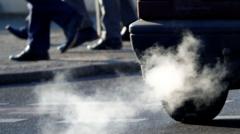Could a Fake Dentist Really Perform Root Canals Just by Following Online Instructions?

Unlicensed Dental Practices: The Case of the Fake Dentist in Czech Republic
The recent arrest of a 22-year-old man in the Czech Republic, who posed as a dentist, has shed light on a troubling trend of unlicensed medical practices. Along with two family members, he operated an illegal dental clinic from their home in Havlickuv Brod, treating dozens of patients using information sourced from the internet. This shocking case raises significant questions about patient safety, regulatory oversight, and the growing prevalence of unqualified practitioners in the medical field.
Background of the Case
The illegal dental operation came to light when Czech police arrested the trio earlier this month. The main accused, a 22-year-old man, along with a 50-year-old woman and a 44-year-old man, was charged with a series of crimes, including operating an illegal business, money laundering, attempted assault, drug dealing, and theft. The clinic reportedly made over four million Czech koruna (approximately £137,827 or $185,500) during its two years of operation.
Details of Their Operations
The trio managed to run a dental clinic without any formal qualifications. The 22-year-old man performed a range of dental procedures, including:
- Tooth extractions
- Complex root canal treatments
- Administering anesthesia
All procedures were executed based on instructions found online, demonstrating a blatant disregard for patient safety and the necessary professional standards. The woman, who worked as a nurse, facilitated the operation by providing anesthesia and various dental materials, while the 44-year-old man created prosthetic devices for patients. This collaboration among family members highlights the alarming ease with which unqualified individuals can access medical tools and perform procedures.
Implications for Patient Safety
This case underscores a significant risk to patient safety. Patients seeking dental care may unknowingly fall victim to unlicensed practitioners, jeopardizing their health and well-being. The lack of professional training can lead to severe complications, such as:
- Infections from improperly performed procedures
- Severe pain and discomfort
- Long-term dental issues resulting from inadequate care
Regulatory Challenges in the Czech Republic
The Czech Republic has seen a rise in similar cases, with an average of ten fake dentist incidents reported annually. The president of the Czech dental chamber, Roman Šmucler, noted that there were three new cases reported on the same day as the arrest in Havlickuv Brod. This trend highlights the need for stricter regulations and better enforcement to protect patients from unlicensed practitioners.
In response to these challenges, the Czech parliament passed a bill last year aimed at facilitating the employment of dentists from countries outside the EU. This measure may help alleviate some of the staffing shortages in the dental field, but it also raises concerns regarding the vetting process for foreign professionals.
Consequences for the Accused
All three individuals involved in this case have pleaded guilty to multiple charges and now face potential imprisonment of up to eight years. The legal consequences serve as a warning to others considering similar illegal practices. However, the absence of patient complaints reported in this case poses a significant question: how many others have suffered in silence due to unlicensed dental care?
The Role of Public Awareness
Public awareness plays a crucial role in preventing such incidents. Patients must be educated about the importance of seeking care from licensed professionals. Some key points to consider include:
- Always check the credentials of your healthcare provider.
- Verify that the clinic or practice is licensed and accredited.
- Be cautious of unusually low fees that may indicate unlicensed practices.
Conclusion: The Need for Vigilance
This alarming case serves as a stark reminder of the implications of unlicensed medical practices. As healthcare consumers, we must remain vigilant and informed about the qualifications of those providing our care. While regulatory measures are being implemented to combat these issues, patient education is equally essential in safeguarding our health.
FAQs
What are the risks of receiving dental treatment from an unlicensed practitioner?
Receiving treatment from unlicensed practitioners can lead to severe health risks, including infections, improper procedures, and long-term dental complications.
How can I verify if my dentist is licensed?
You can verify your dentist's credentials by checking with the local dental board or regulatory body, which maintains records of licensed practitioners.
What should I do if I suspect someone is practicing dentistry without a license?
If you suspect someone is practicing dentistry without a license, you should report it to the local health authorities or dental board for investigation.
As we reflect on the implications of this case, it raises a significant question: how can we better protect ourselves and our communities from unlicensed medical practices? #PatientSafety #DentalCare #HealthRegulations
Published: 2025-06-18 18:01:06 | Category: world



